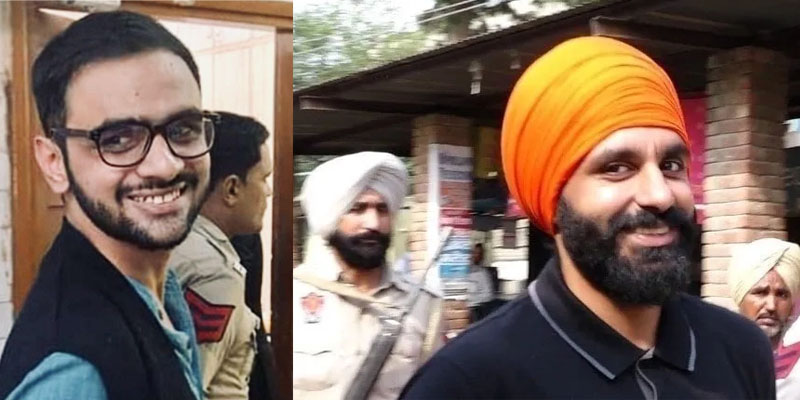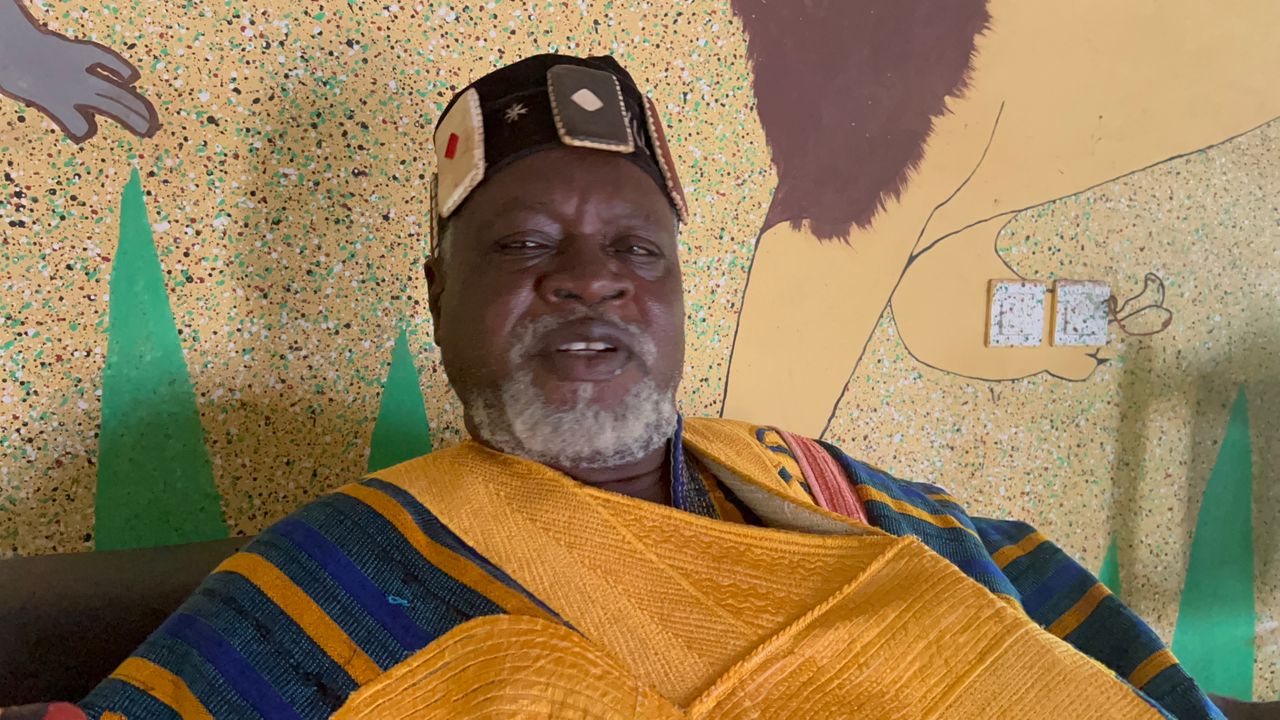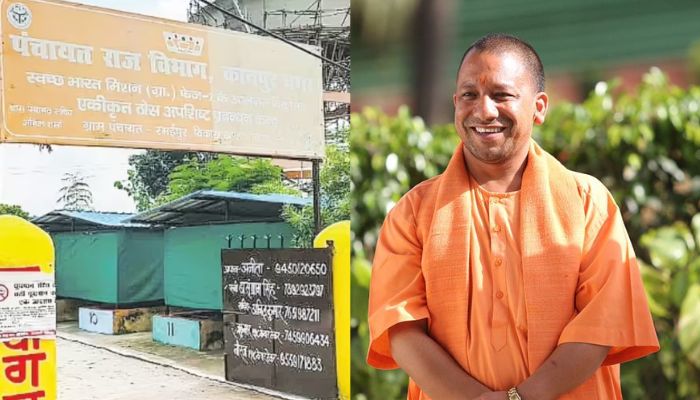By Asia Samachar,Gurnam Singh
Copyright asiasamachar

By Gurnam Singh | Opinion |
Umar Khalid, who had completed a PhD on the plight of Adivasis in Jharkhand at Jawaharlal Nehru University (JNU) in Delhi, was arrested by the Delhi Police Special Cell on 14 September 2020 as an alleged conspirator in the February 2020 Delhi riots. The clashes, centred in north-eastern districts, were triggered by tensions around the Citizenship Amendment Act (CAA) and saw mobs attacking homes, shops, mosques, and vehicles, with widespread arson, looting, and killings. The violence drew criticism for police inaction and complicity, and raising concerns about intolerance and human rights in India.
Like Umar Khalid, Jagtar Singh Johal, a British Sikh activist from Scotland, was arrested in Punjab, India, on 4 November 2017, shortly after his wedding. Indian authorities accused him of involvement in a series of targeted killings of Hindu leaders between 2016 and 2017, allegedly orchestrated by the Khalistan Liberation Force (KLF). Johal faced multiple charges, including terrorism, conspiracy, and murder. In March 2025, a Punjab court acquitted Johal of all charges, but despite this remains incarcerated, facing eight other similar charges brought by India’s National Investigation Agency (NIA).
The cases of Umar Khalid and Jagtar Singh Johal must not be seen in isolation of a major transformation tasking place in India where in the name of Hindutva nationalism, democracy and the rights of citizens, and minorities in particular, are being seriously eroded. Khalid, a Muslim intellectual and former student leader, has now spent five years in Delhi’s Tihar Jail under the Unlawful Activities (Prevention) Act. He has never been convicted of any crime. His real “offence,” say supporters, is that he is outspoken, fearless and unapologetically critical of Hindu nationalism. Amnesty International has described his case as a “sham” designed to intimidate dissent.
Johal, a British Sikh arrested in Punjab in 2017, has faced allegations of torture, arbitrary detention and fabricated charges. The UN Working Group on Arbitrary Detention has ruled that his imprisonment has “no legal basis” and is discriminatory, linked to his Sikh identity and activism. Despite an acquittal in one case, he remains mired in prosecutions that could carry the death penalty.
FOR MORE STORIES ON JAGTAR SINGH JOHAL, CLICK HERE
These men are not alone. From student leaders to journalists, thousands languish in Indian jails without trial, their voices silenced by laws originally intended to combat terrorism but now wielded as political weapons.
India’s independence movement was not merely about ending colonial rule; it was framed as a moral struggle to create a republic grounded in democracy and the principles of justice, equality and truth. In 1947, the nation’s leaders promised nothing less than a democratic experiment unlike any other.
Mahatma Gandhi declared that “democracy must in essence… mean the art and science of mobilising the entire physical, economic and spiritual resources of all the various sections of the people in the service of the common good.” For him, swaraj or self-rule meant empowering the weakest. Jawaharlal Nehru, in his famous “Tryst with Destiny” speech, pledged that “the service of India means the service of the millions who suffer… the ending of poverty and ignorance and disease and inequality of opportunity.” Sardar Vallabhbhai Patel, architect of India’s federal unity, urged his fellow citizens to “forget that he is a Rajput, a Sikh or a Jat… He must remember that he is an Indian and he has every right in this country but with certain duties.”
These were not just lofty words. They were the moral scaffolding for the world’s largest democracy. Yet today, India stands alarmingly far from these founding ideals. The two cases highlighted represent the tip of an iceberg that reveals the disconnect between the romantic vision of India portrayed by the state propaganda and the ground realities. What was once celebrated as a vibrant republic is now sliding into kleptocracy. Far removed from the utopian dreams of 1947, today India is ruled by a nexus of politicians, businessmen, criminal barons and elites who thrive on corruption, while dissenters are punished and minorities scapegoated.
A history of betrayal
This repression is not without precedent. India’s post-independence record is scarred by state-sponsored or state-enabled violence against minorities. In 1984, following Indira Gandhi’s assassination, more than 3,000 Sikhs were killed in organised pogroms in Delhi and Punjab. Women were raped, homes and gurdwaras burned, while the police looked away. For decades, perpetrators enjoyed political protection, with only a handful brought to justice.
In 2002, Muslims in Gujarat suffered horrific violence after the Godhra train fire. Human Rights Watch documented how mobs armed with voter lists targeted Muslim families while state authorities failed to act. Narendra Modi, then chief minister of Gujarat, has long faced allegations that his administration turned a blind eye to the violence.
In Kashmir, the abrogation of Article 370 in 2019 stripped the region of its autonomy, imposed communications blackouts and led to mass detentions. Amnesty International has described the human rights situation there as one of “systematic repression.”These episodes point to a consistent betrayal of India’s founding promises: Gandhi’s protection of the weak, Nehru’s pledge to end inequality, Patel’s call for unity. In their place has risen a politics of majoritarianism, centralisation and impunity.
From democracy to kleptocracy
India today increasingly resembles a kleptocracy. Politicians accused of corruption or hate speech thrive at the highest levels of government, while innocent activists rot in jail. Media houses that challenge power face raids and intimidation. The judiciary, once a bulwark of independence, is accused of bending under political pressure. As one commentator observed, “in today’s India, innocence is punished, and criminality is rewarded.”
Though unique in its own right, this degeneration of Indian democracy mirrors a global trend. Around the world, authoritarian leaders cloak themselves in the language of democracy even as they hollow out its institutions. Vladimir Putin in Russia has built a regime of oligarchic kleptocracy. Donald Trump in the United States has undermined democratic trust with conspiracy and division. Narendra Modi has fused Hindu nationalism with crony capitalism, creating a system where allegiance to ideology grants impunity, and dissent invites persecution.
Reclaiming the dream
The tragedy is that India was born with unparalleled moral capital. Its leaders did not simply demand freedom; they pledged a republic that would protect minorities, uphold truth and honour dissent. That promise has been steadily eroded. But history also teaches that authoritarianism is not invincible. Gandhi’s non-violent resistance brought down an empire. Across the world today, movements for democracy, from Hong Kong to Washington, is a reminder that ordinary citizens still have power.
The cases of Umar Khalid and Jagtar Singh Johal should not be seen in isolation. They are symbols of a larger struggle for India’s democratic soul. India still has the potential to be a great union of democratic states, which was the original vision, and not a centralised kleptocracy. But this can only be possible through s renewal of pillars of democracy, namely, an independent judiciary, press freedom, decentralisation of power and political practices who serve the interests of people and not power.
The immediate release of Umar Khalid, Jagtar Singh Johal and the 1000’s of other political prisoners rotting in Indian jails would be a good start.
Gurnam Singh is an academic activist dedicated to human rights, liberty, equality, social and environmental justice. He is an Associate Professor of Sociology at University of Warwick, UK. He can be contacted at Gurnam.singh.1@warwick.ac.uk
* This is the opinion of the writer and does not necessarily represent the views of Asia Samachar.
RELATED STORY:
Rishi Sunak urged to raise India detention of British man, reports BBC (Asia Samachar, 6 Sept 2024)
ASIA SAMACHAR is an online newspaper for Sikhs / Punjabis in Southeast Asia and beyond. You can leave your comments at our website, Facebook, Twitter, and Instagram. We will delete comments we deem offensive or potentially libelous. You can reach us via WhatsApp +6017-335-1399 or email: asia.samachar@gmail.com. For obituary announcements, click here



